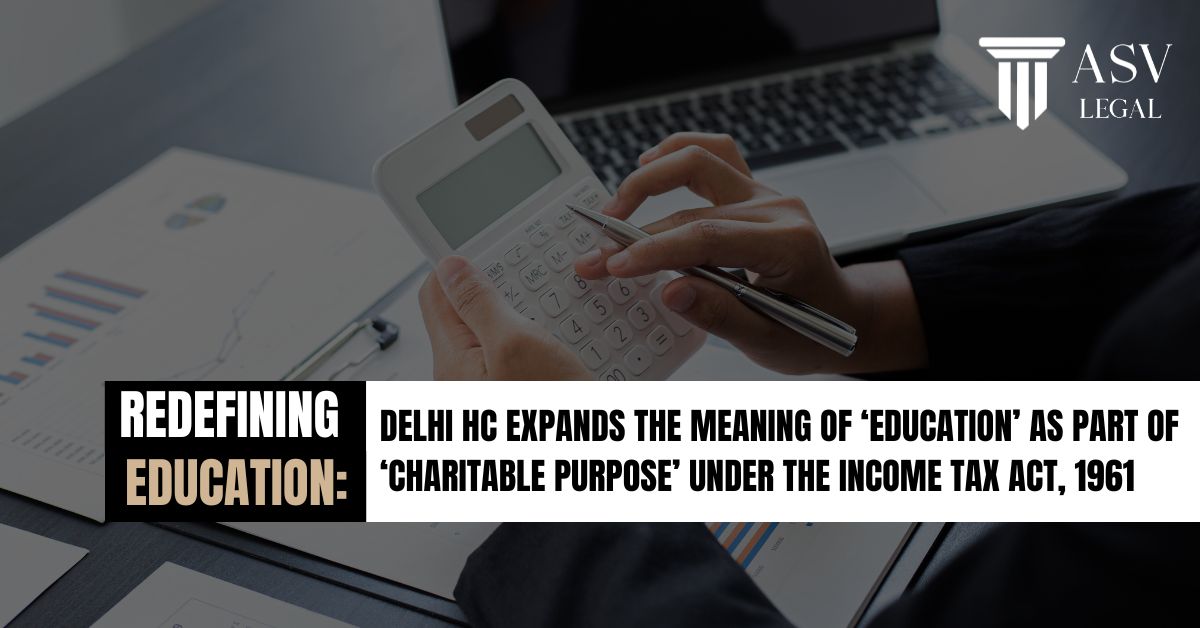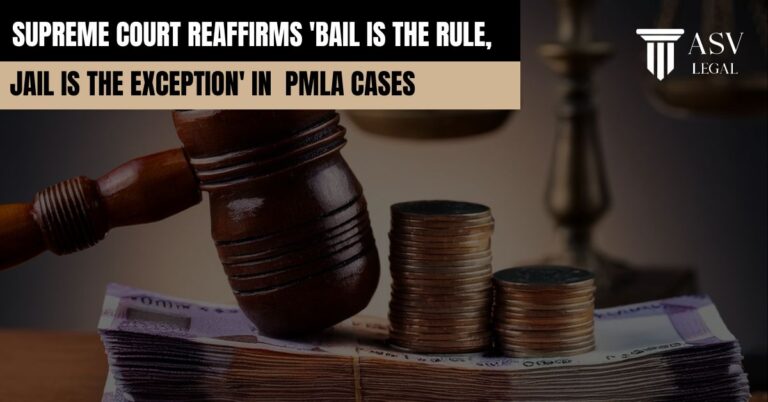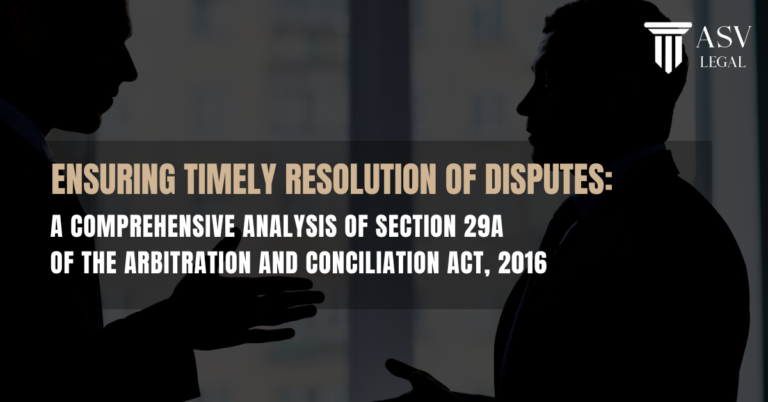Written By: Muskaan Goel
The Hon’ble Delhi High Court through its recent judgement in the case of Commissioner of Income Tax (Exemptions) Delhi vs. NIIT Foundation[1] elaborated upon the interpretation of the ‘charitable purposes’ under Section 2(15)[2] of the Income Tax Act, 1961 (hereinafter referred to as the ‘Act’). The essence of the judgement revolves around the interpretation of the scope of the term ‘education’ as charitable activity for the institutions seeking tax exemptions under the Income Tax Act. The current legal question is particularly relevant today as traditional modes of education are rapidly evolving incorporating innovative methods and vocational training initiatives.
In the present case, an appeal was filed by the Revenue, under Section 260A[3] of the Act against the order passed by the Income Tax Appellate Tribunal for Assessment Year 2014-15, whereby it was held that the Assessee is carrying on educational activities which are covered by the provisions of Section 2(15) of the Act as it is neither the business nor the profession of the Assessee.
To elaborate on the facts surrounding the case, the NIIT Foundation is a society registered under the Societies Registration Act, 1860. Furthermore, they are also registered under section 12A[4] and were allowed deductions under the Section 80G(5)[5] of the Act. For the relevant assessment year, the case of the NIIT Foundation was selected for scrutiny assessment after it filed its return of income. The Assessing Officer accepted the charitable nature of the educational activities undertaken by the Foundation, leading to the completion of the assessment. However, the Commissioner of Income Tax (Exemptions), set aside the assessment order and contended that the Foundation was not engaged in imparting education because it was not affiliated with any regulatory body, thereby denying it the exemption under Section 11[6] of the Act.
The High Court considered the following question of law “Whether the ITAT was correct in coming to the conclusion that the assessee was undertaking educational activities in terms of Section 2(15) of the Act?”[7]. The present question of law is of significant importance in the current era as the traditional modes of education are rapidly evolving into innovative methods and vocational training initiatives. The High Court’s ruling that the NIIT foundation was indeed engaged in educational activities is significant for several reasons, particularly because it challenges the rigid and narrow interpretation of “education” as a charitable purpose under Section 2(15). The court held that the educational activities which are systematic, well-structured, and designed to impart skills and knowledge to underprivileged youth, fulfils the essential criteria of formal education.
The judgment relies on the landmark precedents of the Supreme Court, particularly Lok Shikshana Trust v. CIT[8], which defined “education” under Section 2(15) refers to the methodical teaching, training, or schooling that is provided to children in order to prepare them for adulthood, and the same was reiterated by the Supreme Court in New Noble Educational Society v. CIT [9]. Although this useful concept has frequently been interpreted too narrowly, leaving out activities that do not follow conventional educational models. The Delhi High Court expanded this interpretation in the NIIT Foundation case, recognizing that modern education includes vocational training and digital literacy. The court emphasized that these activities, supported by structured courses and NSDC approval, meet the criteria for formal education and upheld the Foundation’s charitable nature. The ruling acknowledges the evolving scope of educational activities under Section 2(15).
The High Court has affirmed that education under Section 2(15) includes activities beyond traditional schooling, providing flexibility for charitable organizations. This decision highlights the importance of keeping up with the evolving nature of society at large and it’s institutions while interpreting the laws. The court emphasized the non-profit nature of NIIT Foundation’s activities and warned against granting charitable status to businesses with a profit-oriented goal. This is particularly important in a world where the boundaries between charity and commerce are increasingly blurred, and where innovative, revenue-generating models are often necessary for the sustainable operation of charitable organizations.
In conclusion, the Delhi High Court’s judgment in NIIT Foundation (supra) represents a critical development in the interpretation of charitable purposes under the Income Tax Act. The judgment reflects a broader and more inclusive understanding of education as a charitable purpose, one that is responsive to the realities of modern educational needs. By recognizing that affiliation with regulatory authorities is not a prerequisite for educational activities to qualify as charitable, the court has paved the way for a more flexible legal framework that can accommodate the diverse ways in which charitable organizations operate today. This judgment is a significant step forward in the ongoing evolution of the legal landscape governing charitable organizations in India, offering both clarity and flexibility to support the sustainable and innovative operation of these entities in the service of the public good.
[1] 2024 SCC OnLine Del 5040
[2] Section 2 Clause 15 of the Income Tax Act, 1961 defines ‘charitable purpose’
[3] Section 260A of the Income Tax Act, 1961, ‘Appeal to High Court’.
[4] Section 12A of the Income Tax Act, 1961, ‘Conditions for applicability of sections 11 and 12’.
[5] Section 80G of the Income Tax Act, 1961, ‘Deduction in respect of donations to certain funds, charitable institutions, etc’.
[6] Section 11 of the Income Tax Act, 1961, ‘Income from property held for charitable or religious purposes.’
[7] Commissioner of Income Tax (Exemptions) Delhi vs. NIIT Foundation ITA 149/2021 through order dated 09.05.2024
[8] (1976) 1 SCC 254
[9] 2010 SCC OnLine AP 1077



